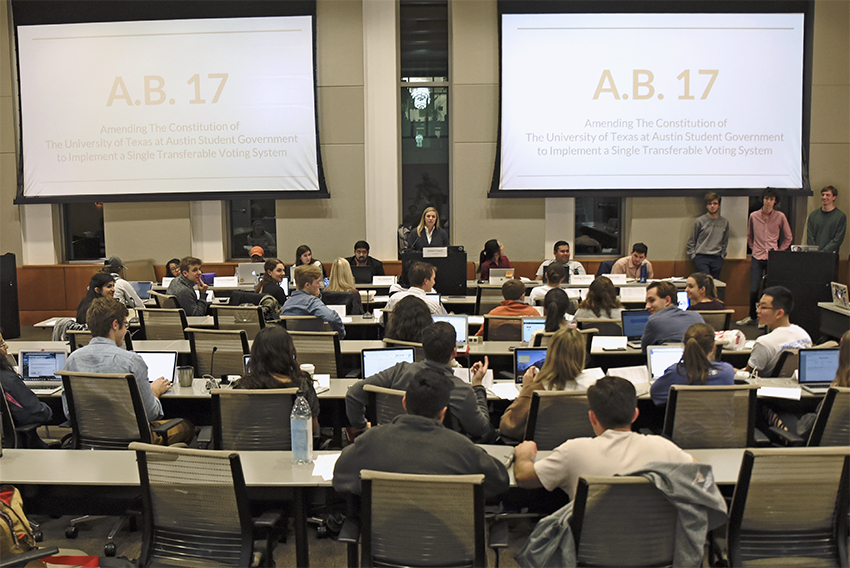Student Government is working on two pieces of legislation concerning domestic and sexual abuse — one addressing the University’s policies on the issues and another regarding pharmacy professor Richard Morrisett.
Joint Resolution 5, the hotly debated legislation from last week’s meeting aimed at revising the University’s policies regarding domestic abuse and sexual assault, was tabled to allow representatives more time to work on Assembly Resolution 23, which supports the University taking action against Morrisett.
“The goal is to pass (AR 23 and JR 5) as one message but two separate pieces of legislation to be looked at and given the same time and consideration by the University,” said legislative policy chair Natalie Engel.
Engel, a social work and communication studies senior, said representatives would use the upcoming week to confer with pharmacy students on how to proceed with Morrisett’s case. The pharmacy professor pleaded guilty to a felony charge after strangling his girlfriend and then continued his employment at the University, according to an investigation by the Austin American-Statesman.
“That will shape how this legislation turns out for actual voting next Tuesday,” Engel said.
AR 23 was referred to student affairs committee for further debate. Afterward, JR 5 was elaborated on.
“It may take one fact or one article to condemn one individual, but it takes all of our full intellectual and emotional capacity to address an issue as complicated as domestic violence,” pharmacy representative Lubna Mazin said.
Pharmacy representatives have been meeting regularly with administrators to understand how the situation came to be, said Mazin, a pharmacy graduate student.
“We started reading into the policies to see what kind of gray areas brought us to this point,” said pharmacy council president Melissa Kang. “We (looked at the) concrete policies that UT currently has.”
It was important that J.R. 5 only deal with University policies, not Morrisett’s case in particular, to prevent distraction from their goal of preventing this situation from arising in the future, said Kang, a pharmacy graduate student.
“We wanted to ask for something that we knew was feasible and not something that someone would look at and just toss our legislation into the trash,” Kang said.
That decision was reinforced after learning about the complexity of removing a tenured faculty member, which is decided by the Board of Regents, Kang said.
This issue has grown to encompass the whole University, Mazin said.
“We are all on the same side, fighting for student safety.”





















